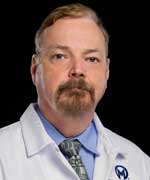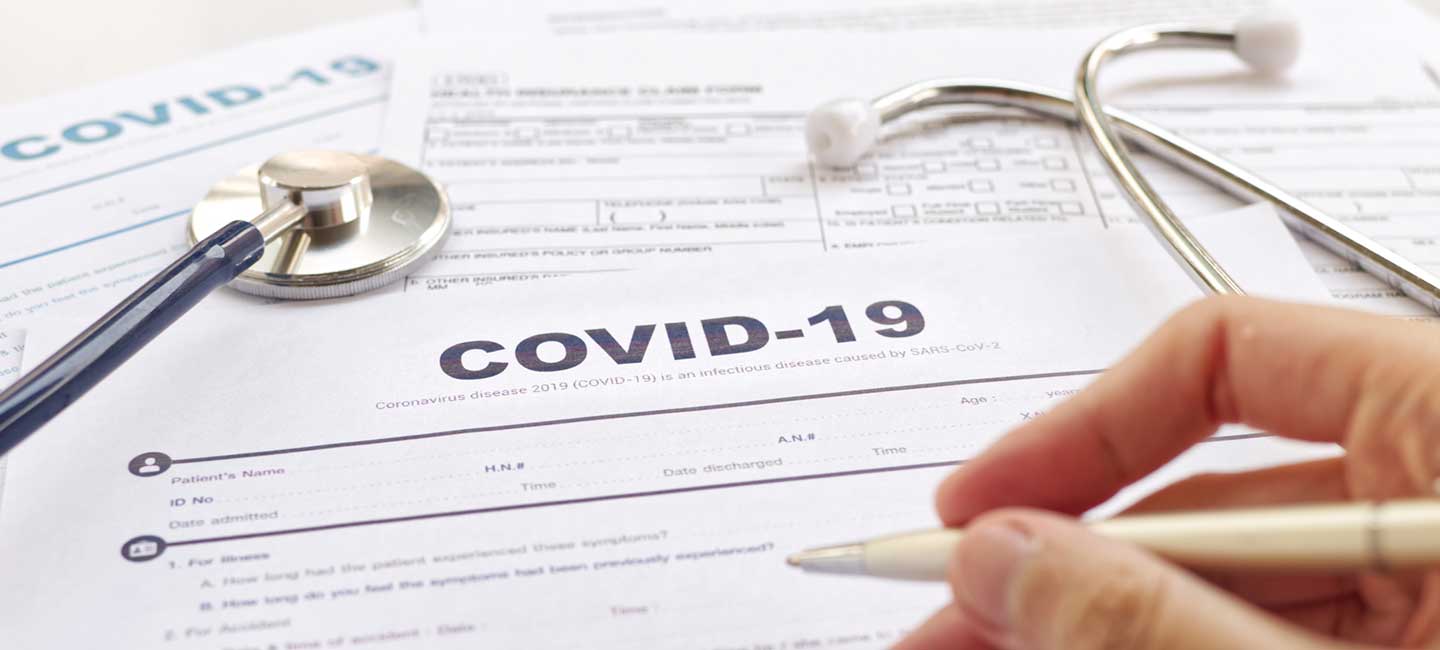In the Eye of the COVID-19 Storm
Preparedness is not a new concept at Moffitt Cancer Center. Every year, Moffitt has its eye on June 1—the beginning of hurricane season—and readies a plan to deal with power outages, possible supply shortages and any other factors that stand in the way of cancer care.
Moffitt leaders are applying that same mindset to the challenge of COVID-19.
“In Florida, part of that hurricane preparedness is how you deal with the catch-up, how do you manage all those patients whose treatments are delayed or studies that need to be done?” said Dr. Robert Keenan, chief medical officer at Moffitt. “We are already familiar with that, but COVID-19 may just be a longer and larger process than during a hurricane.”

Dr. Robert Keenan, Vice President, Quality and Chief Medical Officer
Although a hurricane gives more advanced warning and lasts a shorter time than a virus pandemic, Moffitt’s crisis plans, including its hurricane strategy, provide a solid foundation for the COVID-19 response.
The first step is opening the lines of communication between Moffitt leaders, team members and patients.

Jack Kolosky, Chief Operating Officer
“We have a lot of people who are on edge and the best thing we think we can do is communicate the facts as we understand them,” said Moffitt Chief Operating Officer Jack Kolosky. “Moffitt is using the best advice from places like the Centers for Disease Control (CDC)—and use the best science, facts and judgment in how we are going to handle this.”
Avoiding a shortage
Like many other health care institutions around the world, Moffitt is facing the challenge of dwindling personal protection equipment, known as PPE, such as masks and glove. The cancer center is following CDC guidelines for mask-wearing and also removed masks from self-service kiosks around the hospital.
“We have an excellent Infectious Disease team and they have been very attentive to staff who are concerned about themselves and patients,” said Keenan. “They can offer the best advice, if there’s a need to be concerned and appropriate measures to take, which includes full protective equipment is necessary.”
The cancer center is also working with additional vendors to secure more protective equipment, he said.
Limiting physical interaction
Moffitt staff are working to minimize the chances of exposure inside its walls. A limited number of visitors are allowed to accompany patients; screeners are at each entrance to catch anyone displaying symptoms.
Each clinic has been diligently combing through patient schedules for at least the next month and postponing appointments that won’t negatively impact a patient’s outcome, like annual check-ups, routine screenings for average-risk patients and genetic screening visits. Non-urgent surgeries are also being delayed.
“In absolute numbers, the volumes are down,” said Kolosky. “What isn’t down is the number of patients in active treatment. Those patients are more motivated to deal with their cancer as soon as possible, so chemotherapy, radiation and necessary surgery are ongoing. The things that can be deferred we have.”
Moffitt is also making use of the advances in telemedicine. When Hurricane Irma hit Florida in 2017, the digital platform was still a fairly new concept and not widely used. Today, Moffitt is ramping up virtual visits for patients who do not need to be seen in clinic.
In response to COVID-19, the state and federal government have loosened telemedicine regulations to make virtual visits easier. For the first time, the state is allowing a provider to extend virtual care to patients outside of Florida. Insurance companies have also acted quickly to make telemedicine a covered service.
Not stopping the science
Moffitt’s mission is about the prevention and cure of cancer, and the center’s research arm is continuing its research and clinical trials with as little interruption as possible during the COVID-19 pandemic.
While recruiting patients for some clinical trials has been suspended, currently no treatment trials have stopped.
“A lot of trial sponsors have loosened regulations to allowed telemedicine to be used,” said Keenan. “This is great because the patients can continue on the trials.”
While trials that include patient treatments are continuing, in-person recruitment for observational and behavioral interventional studies have been suspended until further notice. Follow-ups with participants already involved in a study that can be conducted remotely can continue, but those that require in-person visits are being postponed.
Learning from crisis
While it is still uncertain how long the COVID-19 pandemic will last, the pandemic will have a long-term impact on the cancer center. But that’s not necessarily a bad thing, especially in terms of growth. The pandemic has rapidly accelerated the use of technologies like telemedicine and remote working for team members.
“This crisis allows us to examine our preset practices,” Keenan said. “Can a new way help us achieve the same goal?”



